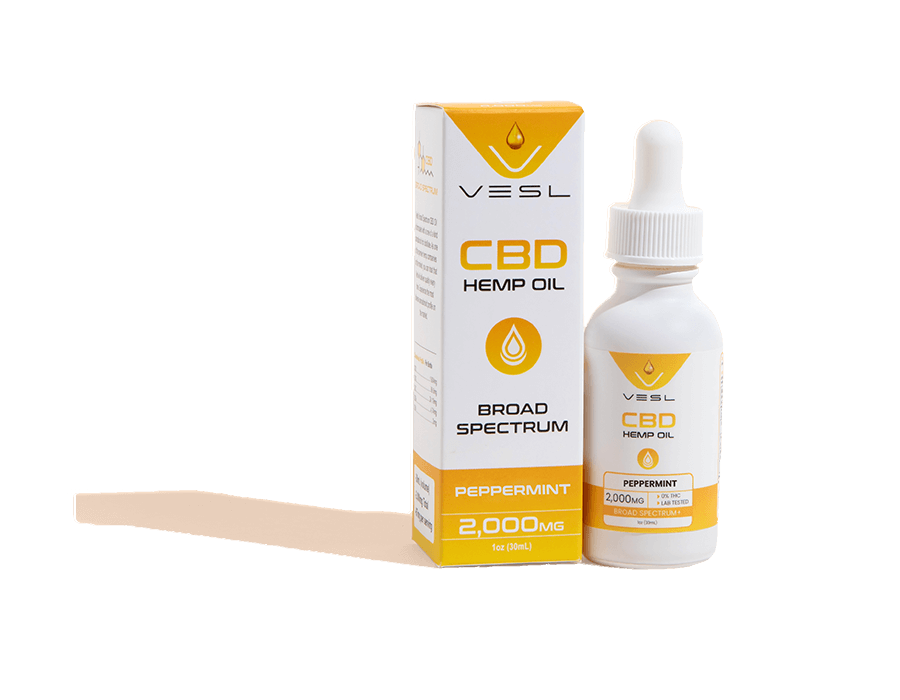Expressions such as “My gut is telling me to…”, or “I felt butterflies in my stomach” when placed in certain situations are used for a reason. This is an example of how our digestive tract is linked to our nervous system. This brain-gut connection helps us understand that the brain has a direct effect on the stomach and intestines. So emotions such as anger, anxiety, sadness, and even stress can alter gut functioning. This link, however, goes both ways. A troubled intestine may send signals to the brain, just as a troubled brain can do the same. Therefore, stomach or intestinal problems can either be the reason or the result of stress, anxiety, or depression.
Scientists have also recently discovered a direct link between CBD and the brain gut axis. And this is through the endocannabinoid system. The endocannabinoid system or ECS plays an important role in regulating different functions in our body such as movement, pain sensation, immune responses, and cognitive or mental functions. ECS keeps us balanced and CBD helps carry out its function.
The brain-gut connection
The interconnection between the brain and the gut is called “the brain-gut axis”. Some experts call the gut the second brain because of how it affects mood and brain health. One of the reasons is that the gut contains almost 90% of all microbiota. It plays an important role in immunity, energy harvesting, and digestion. This process influences nearly every body function, including the brain.
The human gut is like a brain unto itself because it is lined with more than 100 million nerve cells. Many of these are the Afferent neurons. These are the nerve fibers responsible for bringing sensory information from the outside world into the brain. It means that the gut is sending more data toward the brain than receiving. This is why it can directly affect how the brain works.
The gut also produces more than 90% serotonin. It is the chemical that carries messages between nerve cells in the brain and throughout your body.
Understanding the brain-gut axis
Gut issues can influence brain health in multiple ways. And so are mental health issues affecting the gut.
One of the ways that gut problems can negatively affect brain health is due to malabsorption syndrome and deficiency of micronutrients. Gut problems that may result in low production of short-chain fatty acids, altered metabolism of specific amino acids, altered vagal nerve activity, and, low-grade inflammation, and more also negatively influence brain health.
On the other hand, people who have prolonged and severe anxiety may experience problems in their gut motility. According to research, frequent anxiety episodes or chronic anxiety may lead to severe changes in gut microbiota, and this may hurt the gut-brain connection.
Understanding the connection between your gut, and your brain helps you identify and manage the symptoms of certain diseases in your body. Additionally, learning how CBD and the brain gut axis work together may play a key role in finding treatment.
CBD and the brain gut axis
CBD can help the gut-brain connection in multiple ways. We now know that CBD supports your body’s endocannabinoid system. Endocannabinoids (ECS) are molecules made by your body. They’re similar to cannabinoids, but our bodies produce them. One essential part of the ECS is the cannabinoid receptors: CB1 and CB2.
CB1 and CB2 receptors are found almost throughout the body including your brain and your gut. When CBD regulates and helps these receptors carry out their functions, it also helps the gut-brain connection.
CBD and the brain gut axis: other benefits
- Cannabinoids may help avoid Leaky Gut Syndrome (LGS). It interacts with CB1 receptors to reduce leaky gut. This prevents the release of lipopolysaccharides that increase inflammation throughout the body, which is the most prominent indicator of this condition.
- Interaction of CB2 receptors increase or decrease gut motility. This may help prevent diarrhea and constipation. It also supports regular bowel movements.
- CBD helps with weight management. CB1 and CB2 receptors influence the gut-brain signaling of multiple functions including the feeling of satiety.
- CBD is known to help stabilize mood-related issues such as anxiety, depression, and even stress. Thus, it can help normalize the gut-brain axis.

Final note
By adding CBD, you support your body’s ECS and improve the connection between your brain and gut. Having a healthy brain and gut means living a healthy life.
But knowing why and how they work together and using CBD to support them is not enough. Improving your lifestyle by working out regularly, limiting your processed foods, getting enough sleep, and boosting your intake of a healthy, whole food diet is also important. Surely, this is what your gut feeling will tell you to do, too.
Shop our CBD Hemp Products
CBD Oil – Unflavored
$15.00 – $45.00








